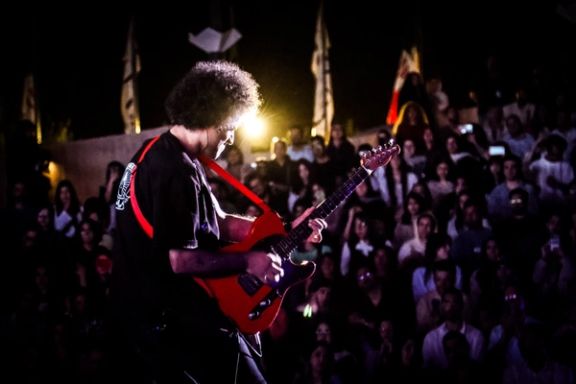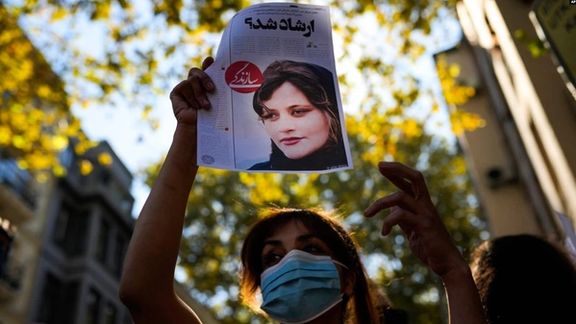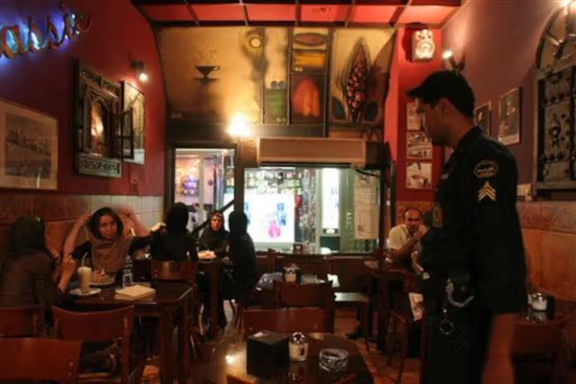The gatherings followed a first wave of commemorations the previous day.
In Toronto, Hamed Esmaeilion, a board member of the Association of Families of Flight PS752 Victims, told demonstrators: “Who is more deserving than the people of Iran to determine the fate of the country? Who is more deserving than the people of Iran to bring the perpetrators of crimes to trial? Who is more deserving than the people of Iran to drag Khamenei and other criminal clerics out of hiding?”
Amini, 22, died on September 16, 2022, after being detained by Iran’s morality police for allegedly violating mandatory hijab rules. Her death sparked months of unrest in which at least 551 protesters, including 68 children, were killed, according to rights groups, and thousands detained.
Voices in London
Several rallies also took place in London, called by around 15 political and civil groups. Videos sent to Iran International showed protesters chanting the names of Mahsa Amini and others killed in the 2022 protests.
Mahsa Piraei, daughter of protest victim Minou Majidi, addressed one gathering. “Today we have come together to shout the names of the victims and not let their memory be forgotten, because what dictatorships do is erase memories. We are heirs to a wounded truth, and we will not let the Islamic Republic bury justice,” she said.
Protests worldwide
Events were held in The Hague, Brussels, Frankfurt, Nicosia, Sydney, Melbourne, Brisbane, Auckland, Calgary, Montreal, Los Angeles, and Washington.
In Sydney, demonstrators urged the Australian government to designate the Revolutionary Guards as a terrorist organization, days after Canberra closed Iran’s embassy and expelled its diplomats over involvement in terror operations.
Alongside the street demonstrations, a two-day National Dialogue for Iran conference was convened in Washington. The 13-panel event gathered former political prisoners, journalists, activists, and victims of state violence.
Participants included former US State Department spokesperson Alan Eyre, German MEP Hannah Neumann, Swedish-Iranian MP Alireza Akhundi. Writers and activists such as Nazanin Afshin-Jam, Nazanin Boniadi, Azar Nafisi, and Atena Daemi joined, alongside Iranian journalists and survivors of eye injuries sustained during protests.
On Saturday, Iranians in Sweden, Switzerland, the Netherlands, Britain, Denmark, Germany, Cyprus, Canada, and the United States had also rallied to mark the anniversary of Mahsa Amini’s killing in morality police custody.






